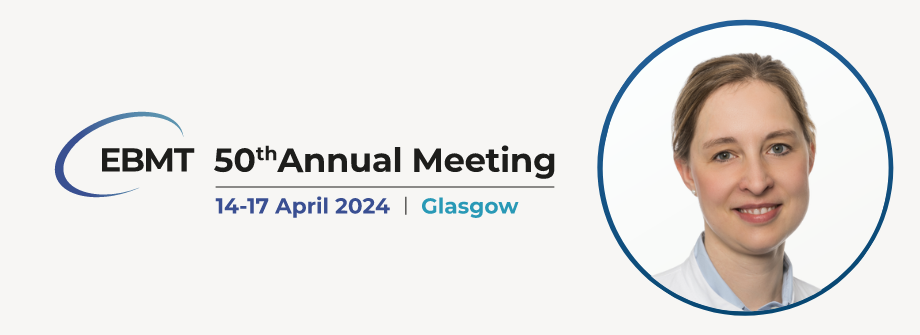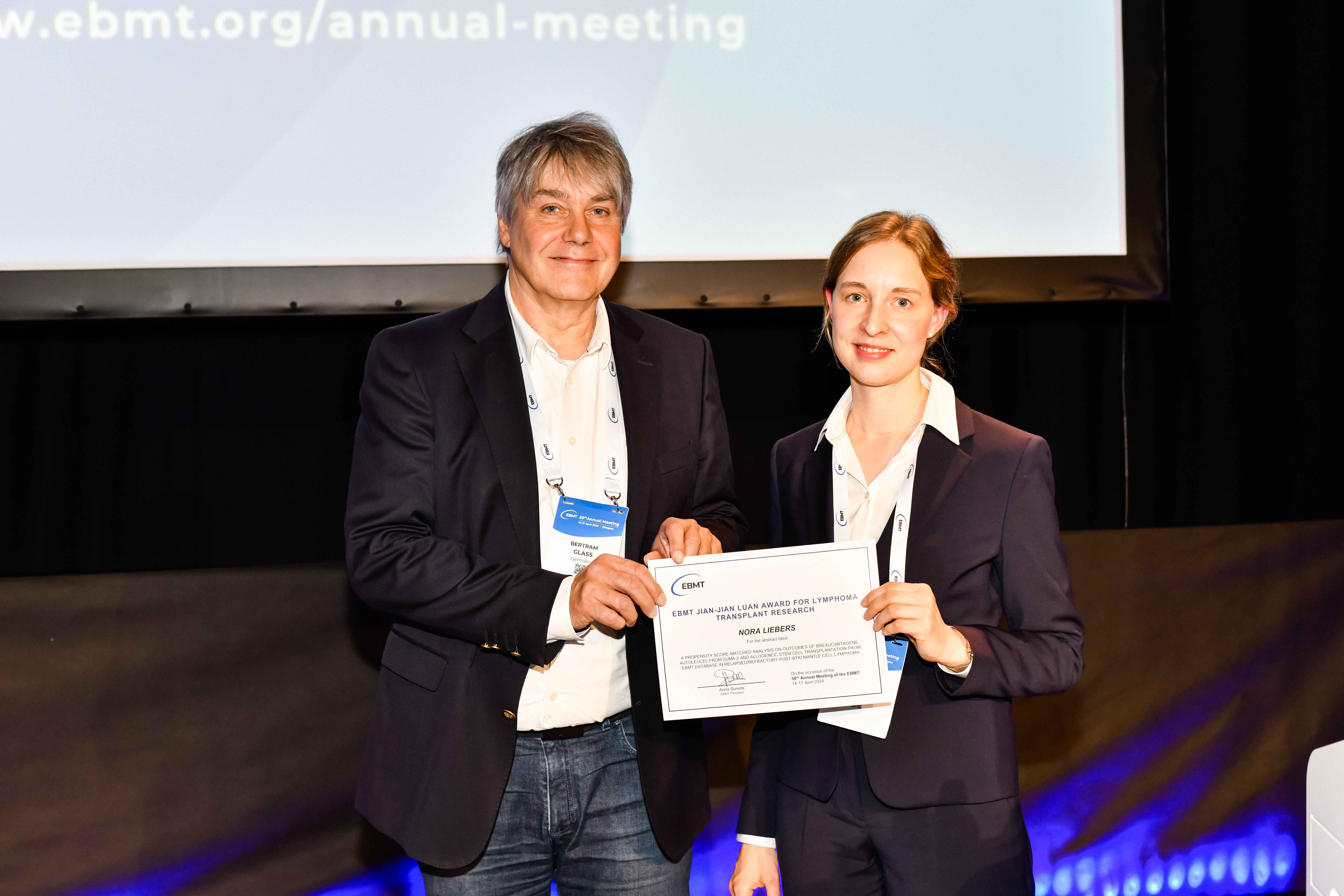
Nora Liebers
Clinical Scientist, Department of Hematology, Oncology and Clinical Immunology, University Hospital Düsseldorf, Germany
What initially sparked your interest in haematology and oncology?
My journey into haematology and oncology was sparked during my time in medical school by the realisation of the high medical need in this field, coupled with a fascination for the potential of research and development to transform patient care.
My interest in this field was further solidified during an internship at MD Anderson Cancer Center, Houston, Texas, USA. In an environment known for its cutting-edge research and comprehensive patient care, I had the opportunity to witness the remarkable advancements being made in the diagnosis, treatment, and management of haematological and oncological diseases. The multidisciplinary approach to patient care, coupled with a relentless pursuit of scientific innovation, has left a lasting impression on me.
You are set to present an abstract, titled ‘A propensity score-matched analysis on outcomes of brexucabtagene autoleucel from Zuma-2 and allogeneic stem cell transplantation from EBMT database in relapsed/refractory post-btki mantle cell lymphoma’. What are the key takeaways from this abstract?
Our study provided a comparative analysis of allogeneic stem cell transplantation and CAR T-cell therapy in the context of relapsed and refractory mantle cell lymphoma. In the absence of a randomised clinical trial, we used a propensity score matched analysis to retrospectively compare patients who received brexucabtagene autoleucel (brexu-cel) in the pivotal ZUMA-2 study, with patients who underwent allogeneic stem cell transplantation, as documented in the European Society for Blood and Marrow Transplantation (EBMT)’s database. Brexu-cel treatment demonstrated a significantly superior 1-year overall survival, and a lower incidence of non-relapse mortality. The long-term progression-free survival and overall survival, however, were similar between both cohorts. Additionally, over one-third of patients after allogeneic stem cell transplantation were affected by the occurrence of chronic graft-versus-host disease, resulting in potential detrimental effects on patients' quality of life. Taken together, brexu-cel is an effective treatment in patients with relapsed and refractory mantle cell lymphoma after BTK inhibitor treatment, with a superior safety profile compared with allogeneic stem cell transplantation.
What motivated you to want to present this abstract, and how do you feel it builds on existing research in this field?
To the best of my knowledge, there have been no studies comparing allogeneic stem cell transplantation and CAR T-cell therapy in patients with relapsed and refractory mantle cell lymphoma. So far, there are only expert opinions that favour CAR T-cell therapy over allogeneic stem cell transplantation for patients with mantle cell lymphoma, who relapse after BTK inhibitors treatment due to the better safety profile. Now, being able to underpin these recommendations with study results, we can better advise our patients on such treatment decisions.
Congratulations on receiving the Jian-Jian Luan Award for your abstract. What about this achievement are you most proud of?
Thank you! I'm particularly proud of the collaborative effort that went into bringing this academic, scientific-driven project to fruition. We had some bureaucratic hurdles to overcome, but the enthusiasm and commitment of everyone involved made it possible. Many thanks to everyone who contributed!
With the recognition this award brings, which topics do you wish to bring more awareness to?
It is crucial that clinicians identify the questions relevant to their clinic and patients, and address them in corresponding studies, both retrospectively and, more importantly, prospectively. Unfortunately, academic research faces increasing bureaucratic hurdles that make conducting studies considerably more difficult, due to the time required, and the difficulty of financial feasibility. This poses the risk that academic research will no longer be competitive with industry-funded research. It is hoped that the framework will be organised in such a way that academic research remains possible and feasible in the future.
As a clinical scientist at Research Group Dietrich, at the University of Heidelberg, Germany, can you provide an insight into the research studies you are currently engaged in?
I'm currently deeply involved in research focused on the secondary use of clinical data generated in routine practice for clinical research purposes. Specifically, I'm interested in the establishment of a data warehouse that collects all this data, providing a crucial research infrastructure. Unlike traditional registries, such a data warehouse allows for the capture of high-dimensional, and particularly longitudinal, data in real-time. Building upon this, we aim to develop clinical decision support systems to enhance patient care and outcomes.
Additionally, our laboratory research has shown promising results in predicting drug response in acute myeloid leukemia through ex vivo drug response screening of primary tumour cells.1 We are now planning to further investigate the predictive value of this functional read-out in lymphatic diseases, aiming to further understand and predict treatment responses in this patient population.
Are there research innovations you want to see implemented into clinical practice?
Ideally, I hope that the clinical decision support systems we are developing can significantly enhance daily medical practice, ultimately improving patient safety. Building upon our investigations into the functional profiling of primary tumour cells, I aspire to enhance the prediction of treatment response in malignant lymphomas, through comprehensive characterisation of intrinsic, extrinsic, and clinical biomarkers. By doing so, we aim to refine personalised treatment approaches, and optimise patient outcomes.
Which sessions are you particularly interested in attending whilst at EBMT, and why?
Due to the growing significance of CAR T-cell therapy in the field of lymphomas, I am particularly interested in attending the GoCART session at EBMT. I am keen to learn about the latest advancements and projects in this area.
References
Liebers N et al. Ex vivo drug response profiling for response and outcome prediction in hematologic malignancies: the prospective non-interventional SMARTrial. Nature Cancer. 2023;4:1648-59.

